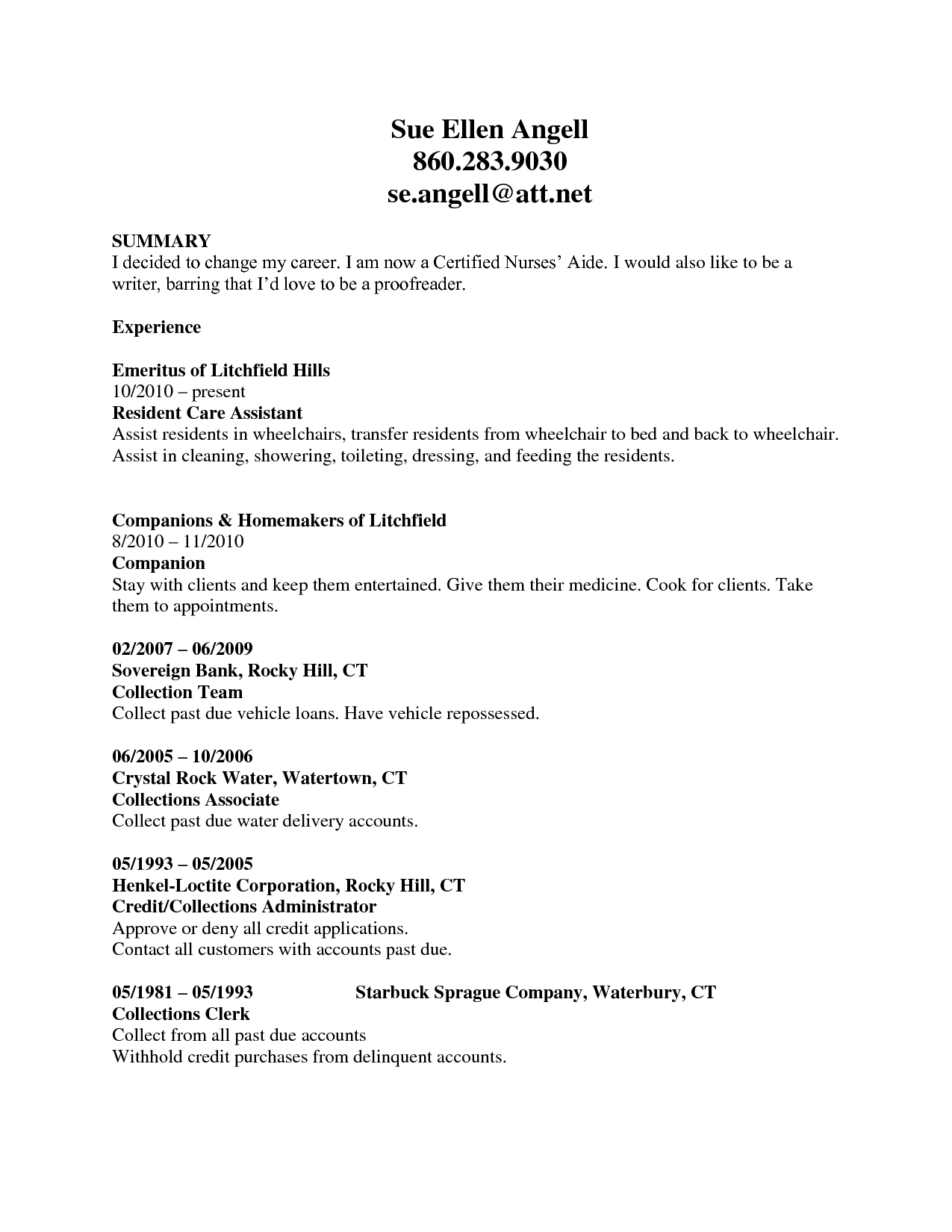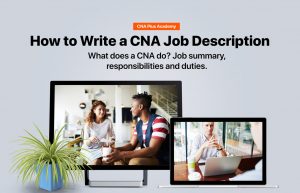How to Write a Winning CNA Resume: Objectives, Skills, and Examples
Whether you’re looking for your first job or your next one, you need a resume that shows employers that you are a skilled professional. Your resume is a summary of your education, experience, and qualifications. When you submit a resume with an application or take it with you to a job interview, you are showing pride in your career and capabilities.
If you’re new in the profession
Even if you are just entering the workforce and have just read the CNA job description, you need a resume. First, it sets you apart from other new CNAs. Second, it marks you as a serious professional. Third, it shows that you have abilities and experience that matter to an employer.
If you’re more experienced
If you’re an experienced CNA, your resume shows your development as a health care professional. It can highlight your work experience and accomplishments. Not every CNA bothers to develop a resume. Yours will put you at the front of the hiring line.
A good resume will put you at the front of the hiring line.
Writing a resume is not difficult, but it does take time and planning. You’ll need to have some basic information and a few dates. You should also spend a few minutes thinking about your strengths and career goals. The contents of a new CNA’s resume will differ from those of a CNA who has held a job or two. But the process is the same.
Ready? Let’s do it! Here are the steps to create your personal CNA resume
- 1
Contact Information:
Provide your full name, home address, phone number, and email address. Note: Be sure your email address looks professional. It can be some form of your name, such as “BettyNurse” or “Betty_Nurse.” Avoid cute or funny email addresses such as “HotNurse” or “Wild_Betty.” Get a new email address if necessary. If you wish to add a number to it, do not use your birth year.
- 2
Objective:
In a sentence or two, describe your career goals and provide a capsule description of yourself. A new CNA job seeker might write, “Compassionate, CPR-certified CNA seeking an entry-level position in long-term care to provide outstanding patient care as a dependable team member.“” A more experienced CNA might write, “Experienced and reliable CNA with excellent patient care and documentation skills, seeking a position in pediatric care. Adept at working in a variety of health care settings.“
- 3
Skills and Qualifications:
Here is where you get to tell a prospective employer how great you are. Don’t overlook basic skills just because they don’t seem particularly noteworthy. The CNA’s role is to measure and record fundamental information about the patients. Here are some examples of skills you can list:
- CPR and first-aid certified (add the date)
- Patient and environmental safety
- Proficient in basic skills of patient care
- Vital signs and patient observation
- Knowledgeable in medical terminology
- HIPAA and patient privacy
- Excellent communication skills
- Use of proper documentation standards
- Supportive of family members
- Strong organizational skills
- Willing to learn new skills
These are only examples. Feel free to think about what you do and know, and add those. Of course, never mention a skill if you can’t do it. That could come back to bite you.
- 4
Education:
In reverse chronological order, list each school you attended on a separate line. Begin with your CNA training: “ABC Vocational School, City, State. Completed (add the date).” If you have your certification, include the date that it was awarded. If you are waiting for the results or have not yet taken the examination, state, “Certification in process.” Next, add other schools. If you graduated from high school in the past five years, add the school and year of graduation. If it was more than five years ago, you do not need to include it. Have you taken any other courses? Do you have any other training? Even if you took a computer course or had the mandatory OSHA Bloodborne Pathogen training at your job, it’s fine to list it here.
- 5
Experience:
If you’re a new CNA, list your clinical and extern experience and dates. You can add a brief statement about the patient care you gave: “Assisted with bathing, feeding, vital signs. Documented in each patient’s medical record.” Then go on to list other jobs you’ve had, even if they weren’t medical. Employers like to see that you have work experience of some kind, at least. If you’re an experienced CNA, you can, of course, list your CNA jobs with dates and short descriptions of their duties. Add any extra duties or accomplishments such as “CNA of the Quarter” or “Safety Committee Member.“
- 6
References:
You need at least two professional references. Always get their permission before listing them on your resume. At least one needs to be a supervisor; for a new student, an instructor is acceptable. You can also provide a reference from a past nonmedical job, such as a manager from the restaurant where you worked while going to school. A co-worker is fine, too, if the person can speak about your skills and work ethic. Provide each reference’s name, title, phone number, and email address.
Your resume should be no longer than two pages. One page would be even better. If you’re not sure how to phrase your skills, or if you want examples of objective statements, visit some job websites for ideas.
Your resume should be no longer than two pages. One page would be even better.
Here are some links to get inspiration.
- For a new CNA: Resume-Now.com, LiveCareer.com
- For an experienced CNA: Monster.com, LiveCareer.com, Nursing-Resume.org
If you look at sample resumes online, you’ll see dozens of different formats and resume templates. Some are simple; others are elaborate. Don’t worry about being fancy or adding clip art of stethoscopes or Band-Aids. Keep your resume neat and error-free. Make copies on good-quality white paper.
When you apply for a job in person, you may be asked to fill out a paper application. Complete it and attach a copy of your resume. Yes, much of the same information will appear on both, but your resume will make your application stand out.
If you submit your application online, you should also have an opportunity to attach your resume. Again, even though the information may seem repetitive, go ahead and attach the resume.
The health care industry is competitive.
Although the demand for CNAs is growing, you want to have a competitive advantage, especially for the best jobs. Your resume (together with a CNA cover letter) can open doors for you, so don’t neglect these valuable tools.
 By
By 




